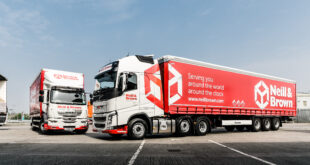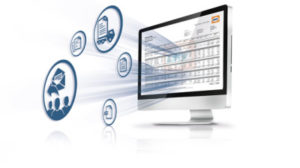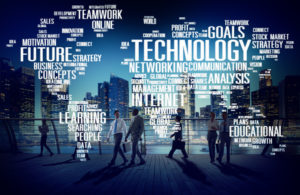Blog series on the transport industry by 2030 by Gertjan Breij, Managing Director DKV Euro Service Benelux
The world is in rapid change. In this respect we see many references to the term ‘disruption’, or ‘digital disruption’: new, digital innovations – or breakthroughs – that might have adverse effects although they are intended to produce new service tools for the benefit of consumers and markets. What are the implications for the transport industry? What macro, meso and micro trends do we perceive that already today are impacting the industry and at the same time determine the state of our industry by 2030?
At macro level we see rapid technological change quickly resulting in change of conduct. Individual consumers are becoming increasingly powerful; a circumstance that is virtually more influential than legislation. Consider for instance the clothing industry and the ‘Primark degrading sweatshop debacle’[1], which ultimately went viral on social media. Something like this might also happen to an average haulage firm tomorrow; consider for instance online posting of footage of a recklessly operating driver. Another perceived change of conduct is the rise of Y (millennials, the Google Generation) and Z-generations (the ‘open-world citizen’).
Members of Generation Y want freedom, self-development and flexibility; job hoppers that opt for atmosphere rather than salary. Generation Z wants to be inspired rather than to assume their ‘manager’ to be the obvious authority. To these generations, the sharing economy comes as a second nature, which in turn impacts market demand (and consequently our industry). In addition we see many classic-shaped firms finding it hard to engage these generations – instrumental as they are for digital innovation – in permanent employment.
At meso level, too, we see swift technological development having a huge impact on the transport industry. Not only are instruments like tube logistics, 3D printing, Robotics, the Internet of Things and augmented reality mutating our business models, they also bring increasing transparency. This is illustrated in for instance AI – the Automatic Identification System; a development that in turn brings an influx of innovative newcomers: disruptors, introducing new concepts and approaches like Shippo, Kontainers and Cargomatic.
In this framework I pose myself the question: ‘How can DKV Euro Service ensure that it remains the one that tips the industry instead of just waiting for someone else to do it?’ This would apply to aspects like product innovation (take for instance alternative fuels) and products & services like data enrichment. In this respect, the ‘new’ role of OEMs in the area of development is another deciding factor.
What does digital disruption imply to you as a company? What is its impact at micro level? With soaring technological change resulting in change of conduct, the upcoming sharing economy and the emerging disruptors in our industry force us to not only take a closer look at our current product and service portfolio, but also to scrutinize our organizational structure. The world is in constant change, so even if we were to introduce an innovative product or service today in order to stand stronger in the future, we cannot but realise that this product or service might well be obsolete in five years’ time.
That is why we must lay out our business again, along dynamic lines. In its 2017 Tech Trends report, Deloitte coins this ‘The Kinetic Enterprise’[2]. An enterprise like this is flexible enough to respond instantly, employing staff containing many members of the Y and Z-generations collaborating across all layers. As hierarchy would be virtually non-existent in organisations like these, their teams are capable of taking independent solutions.
DKV Euro Service is also tackling these developments. In this respect our role over the years has been transferring from ‘fuel card supplier’ to full-service provider regarding mobility issues. We have become a consulting party; one that obviously takes a progressive stance also in the area of technology so that we can help our customers optimize their business processes and gain insight in their operations by way of reports & analytics with a wow! factor.
I would nonetheless make a qualification here. Notwithstanding all changes and transformations I take the view that companies must never lose touch of their roots and origins. Despite the existence of the internet and e-mail it remains nice to be able to send and receive a common, physical postcard at times. This is what we value greatly at DKV, also where it concerns our services. So we will continue to invest in aspects like personal customer contact and our 24-hour, personal service approach.
[1] https://www.theguardian.com/sustainable-business/sustainable-fashion-blog/primark-label-cry-help-bangladesh-women-factories
[2] http://www.deloittedigital.com/us/blog/the-kinetic-enterprise-announcing-deloittes-2017-tech-trends-report
 DKV BeNeLux You drive, we care
DKV BeNeLux You drive, we care



